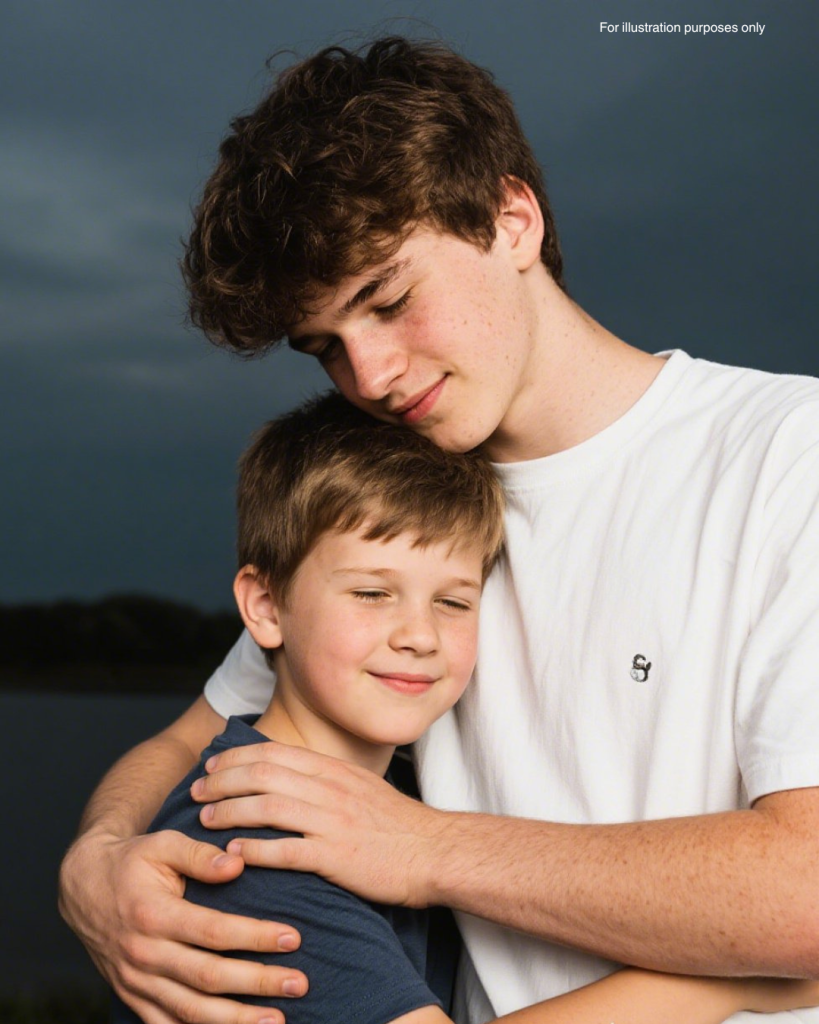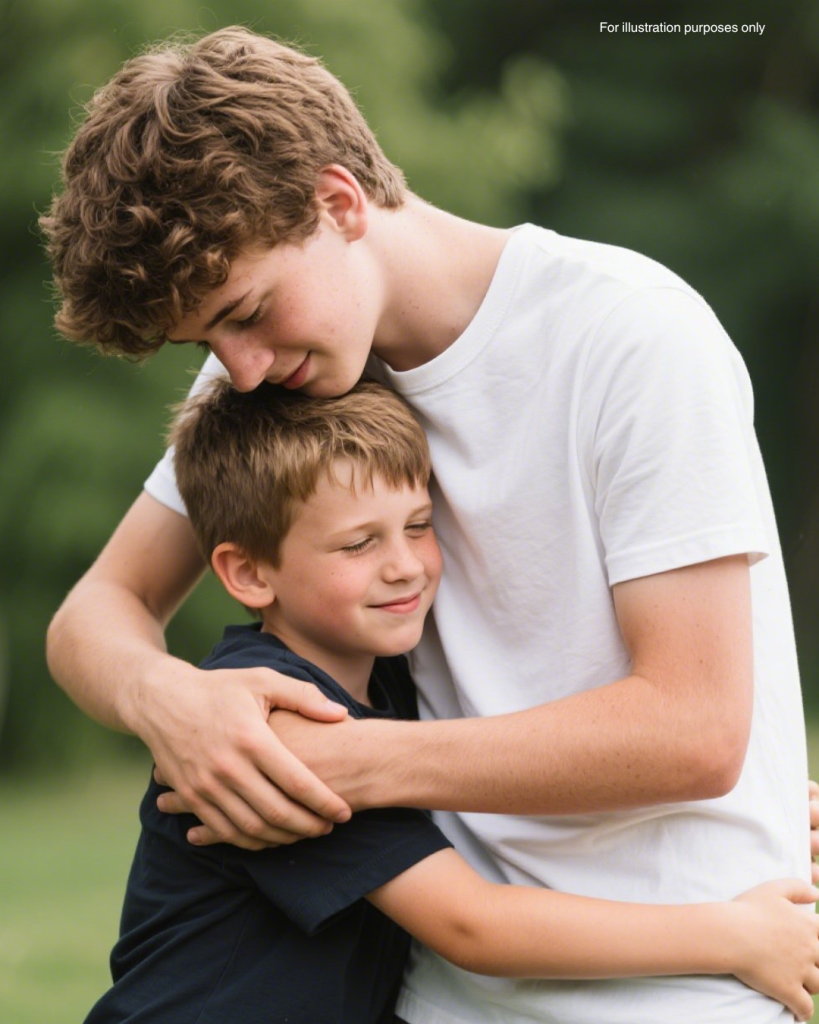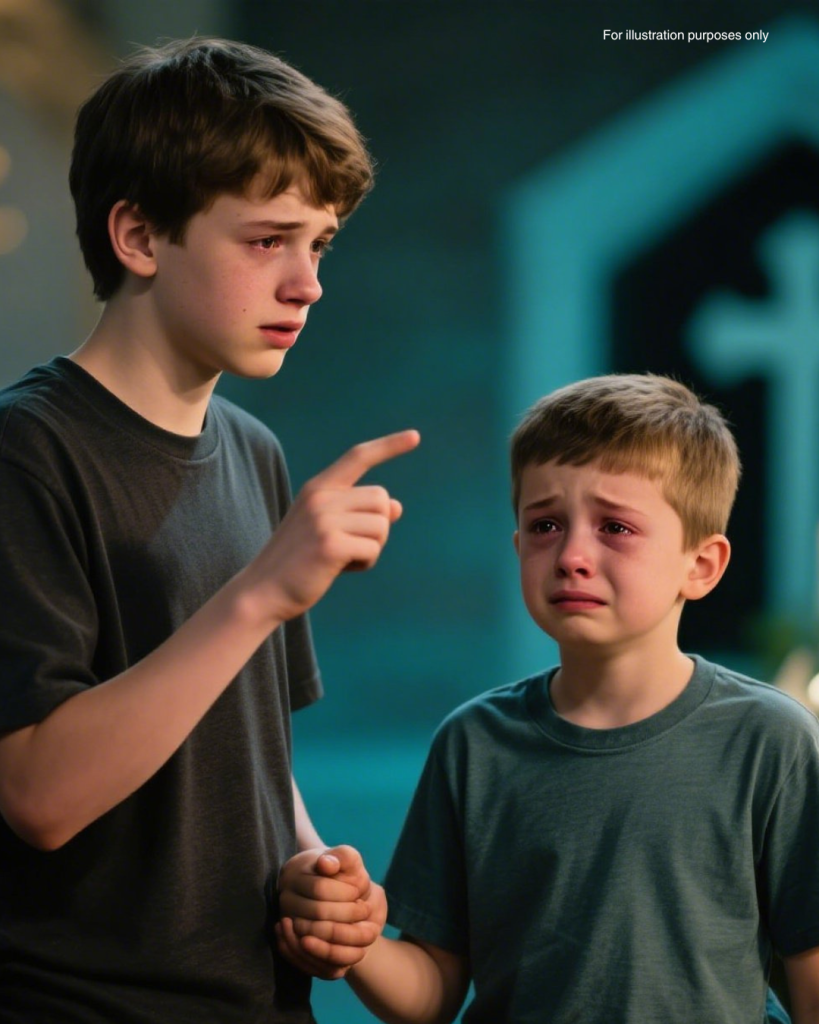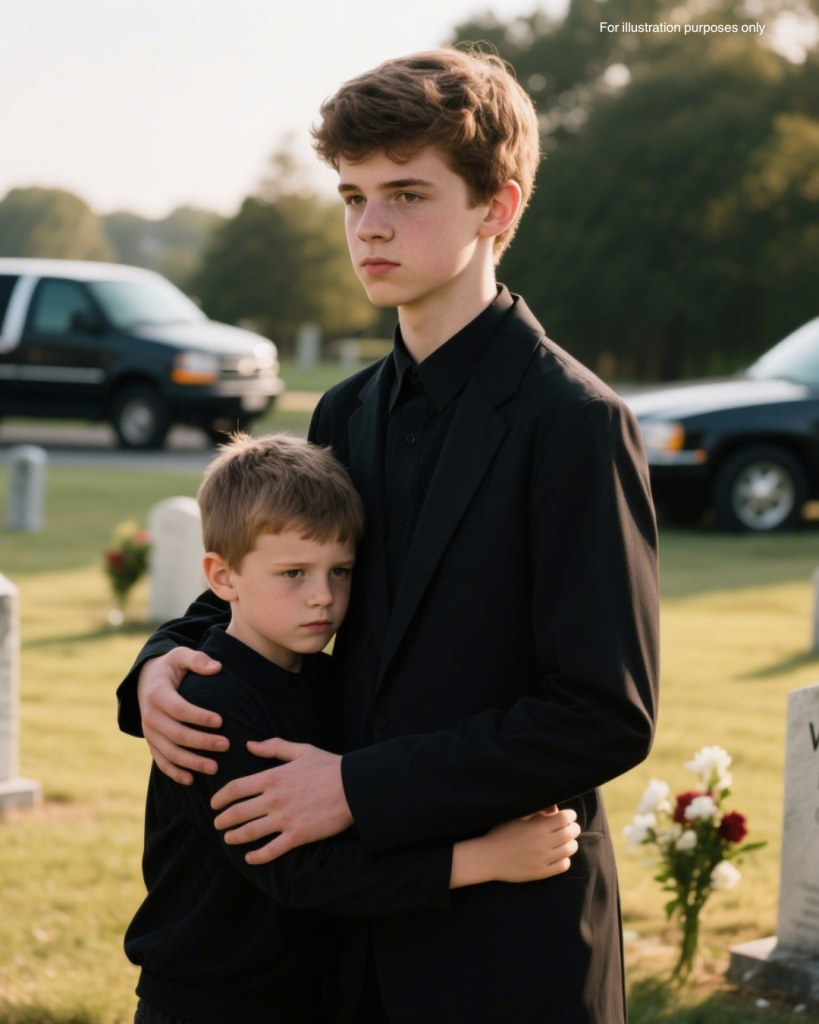When I stood at my parents’ graveside, still dressed in black and clutching my little brother’s hand, I knew my childhood ended right there. Not because of age. Not even because of grief. But because someone else was already scheming to take away the only person I had left.
And I wasn’t going to let that happen.
I had just turned 18 — a birthday no one really celebrated, not with the funeral taking place the same day. Balloons and candles meant nothing. I didn’t care about presents. All I wanted was for Max, my six-year-old brother, to stop asking when Mom would be home.
That night, as I tucked him into bed, he clung to my arm and asked again. I whispered to him: “No one’s taking you away from me. I promise.”

But not everyone had the same idea.
Aunt Diane and Uncle Gary invited us over a week later. They wore expressions painted with sympathy and sat us at their spotless kitchen table while Max played quietly nearby.
“You’re young, Ryan,” Diane began, her tone syrupy and sweet, like she was delivering good news. “You need time to finish school. Max needs something stable. He needs structure.”
“A real home,” Gary chimed in.
It wasn’t subtle.
These were the same relatives who couldn’t remember Max’s birthday or be bothered to visit on Christmas. And now, suddenly, they wanted to step in as his guardians?
A few days later, the papers arrived — Diane had filed for custody. That’s when I realized this wasn’t about care. It was about control. And something deeper. Something off.
I dropped out of college the next morning. No hesitation. There would be time for education later. But right now? Max needed me more than ever.
I took two jobs — food delivery by day, janitorial work by night. We moved from our family home into a shoebox studio that barely had room for two. The walls were close, the floors creaked, and dinner was usually leftovers. But Max smiled.

“It’s cozy,” he said one night, curled under a blanket. “And it smells like pizza and…home.”
That moment nearly broke me. But it also fueled me.
I began filing for legal guardianship. Everyone told me the odds were against me. I was barely an adult. But Max wasn’t just my brother. He was my reason.
Then came the social worker’s visit. The knock on the door changed everything.
“She claims you’ve been leaving him alone,” the woman said, not quite meeting my eyes. “That you yell. That there’s been… physical discipline.”
I stood frozen.
I’d never laid a hand on Max.
But lies have a way of creeping into official reports.
Diane had planted seeds of doubt, hoping they’d grow into reasons to take him from me.
But she hadn’t counted on Ms. Harper.
Our elderly neighbor, a retired schoolteacher, had been keeping an eye on Max while I worked. She stepped into that courtroom like a soldier on a mission, holding a thick envelope and speaking with the authority of someone who’d seen decades of children and caretakers.
“That boy,” she said, pointing straight at me, “has done more with less than most parents ever do. He’s not raising his brother — he’s protecting him.”
Her words shifted the tide. The judge delayed any permanent decision and ordered supervised visitation for Diane. It wasn’t a complete victory, but it bought us time.
Those visits weren’t easy. Dropping Max off at Diane’s house felt like walking him into enemy territory. And one evening, I arrived early — too early.
Max burst into my arms, crying. “She said I had to call her Mommy, or no dessert…”
I promised him he’d never have to call anyone that but Mom.
That night, taking out the trash, I passed by Diane’s kitchen window. Her voice drifted out, sharp and triumphant.

“We need to move fast. Once we have custody, the trust fund unlocks.”
I froze.
Trust fund?
I didn’t know about any trust fund. But that sentence told me everything.
I spent the night digging through old files. And there it was — a $200,000 fund left by our parents for Max’s future. Education. Living costs. A safety net.
Diane hadn’t wanted custody out of love.
She wanted access to money.
The next evening, I returned to that window. This time, I hit record on my phone.
“Once the money’s in our account,” Gary’s voice said, “we can send Max off somewhere. He’s a handful.”
Diane laughed. “I just want a new car and a Hawaiian vacation.”
The next morning, that audio went straight to my lawyer.
In court, Diane arrived dressed like it was a church bake sale — pearls, bright lipstick, and a tray of cookies. She smiled at everyone. Offered sweets. But we brought something better: proof.

The courtroom fell silent as the recording played. Each word, each greedy confession echoed like thunder.
The judge listened, face tightening.
“You attempted to deceive this court,” she said. “And used a child for financial gain.”
The cookies stayed untouched.
Diane and Gary didn’t just lose custody — they were reported for attempted fraud.
That afternoon, I was granted full legal guardianship of Max.
The judge even added a note recommending housing support for what she called my “extraordinary commitment under hardship.”
Outside the courthouse, Max squeezed my hand.
“Can we go home now?”
I knelt beside him, like I always did, brushing back his hair.
“We’re already there,” I said, tears welling in my eyes.
We passed Diane on the courthouse steps. Her lipstick was smeared, and her smile was gone. She didn’t speak.
She didn’t need to.
Two years have passed. I work full-time and study online. Max is in second grade, thriving. We still live in our tiny place. Still argue over bedtime stories. Still laugh until we can’t breathe.
We’re not rich. We’re not perfect.
But we’re real. We’re together.
And when Max looked at me last night and whispered, “You never gave up,” I looked right back and said:
“I never will.”
